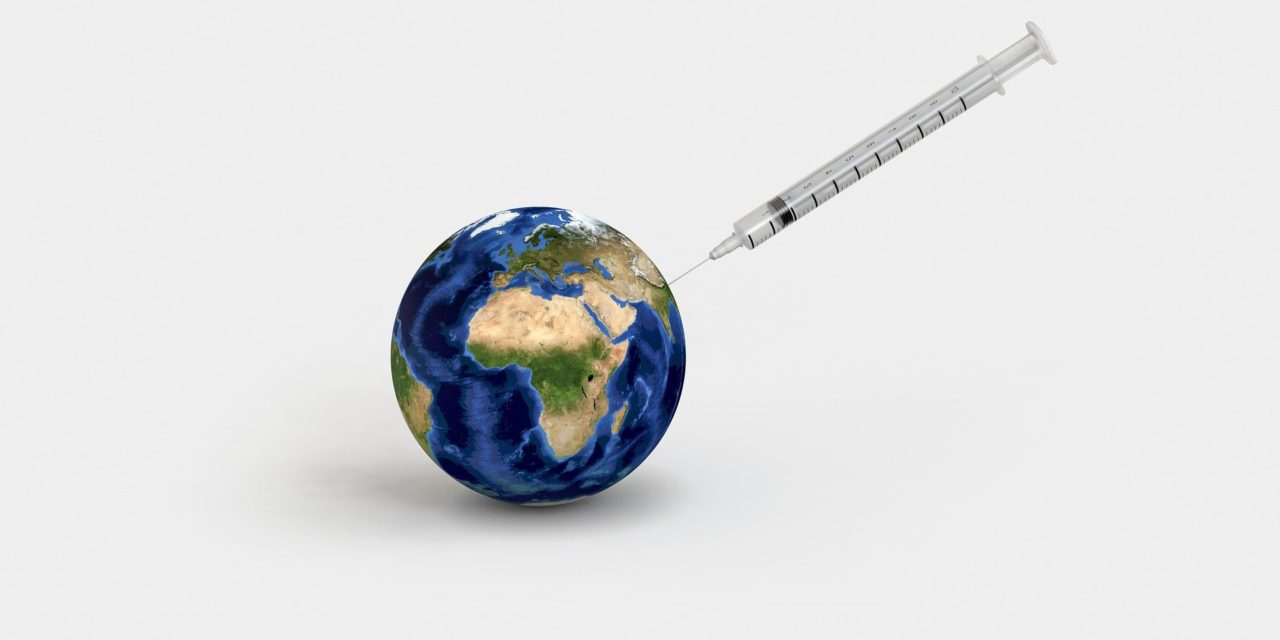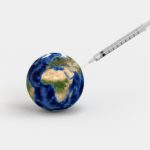In among the horrors of the Covid pandemic you’d like to think that humankind might at least learn an awful lot for the future. Not just the social stuff about working and living differently, not just the things like ‘I might not want or care about the vaccine, but I understand the bigger picture and so will have it anyway’ but some proper hard facts about dealing with a global virus so that next time we can sort it more quickly.
Our world is stacked with data. Almost everything we do is recorded on a spreadsheet somewhere and, while some people don’t like the idea – worried that ‘their’ personal movements are being tracked – the truth is that it’s big data – the aggregation of all those millions of individuals that matters.
This week I experienced a really interesting example. On Monday my wife and me were vaccinated. Shortly after we got home my wife’s immune system went nuts. Waving its metaphorical arms in the air and screaming for help because someone had injected some horrendous foreign body into her system. ‘What is this crazy thing making spike proteins? Be quick my trusty, innate immune system and kill it…now’. Etc. Sweats, chills, aches, nausea…you name it, she had it for 36 hours.
Mine, on the other hand did nothing. Shuffling about, humming gently to itself calmly staring into space. ‘Is that a Chaffinch?’ Not even the slightest side effect – I didn’t even break wind. It’s almost as if my immune system had no idea that anything untoward was whizzing around it.
That fascinates me. How can two people be so different? Is this the same as those 30 per cent of people who get Covid but have no symptoms and, more importantly, are these two groups one and the same? I remember reading how the thing that really makes Covid nasty isn’t the virus itself but an over-reaction by the body’s immune system causing massive inflammation. And, what makes Covid unusual is that where most respiratory viruses never get beyond our throat, windpipe and lungs, Covid gets into all kind of major organs – such as kidneys, brain and heart – undetected and then the immune system over-responds causing massive inflammation and scarring in these organs, which then cause all the horrific problems.
What if it turns out that there is a relationship between the people who don’t show side effects to the vaccine and those who don’t suffer badly with the disease? Given that both the side effects of the vaccine and the illness are caused by an increased reaction of your immune system it might be reasonable to assume a link. Certainly reasonable enough to investigate.
Running the biggest mass-vaccination program in world history gives us a massive opportunity because there are so many people of all ages, backgrounds and different physical conditions being injected and monitored all at once. What if we took a tiny blood sample from every person as they were vaccinated and then sent a message seven days later asking what, if any, side-effects they had suffered. This would generate an enormous database of blood samples of people with side effects and others without. Comparing the two sets of blood samples, wouldn’t it be fascinating if it turned out that the non-sufferers had something different in their blood from the sufferers that prevented their innate immune system (the one that causes fever and swelling before the main system starts whacking out antibodies) from kicking-in and over-reacting?
What if we discovered through this that some people are just built differently and whether this was a genetic characteristic (which would explain why some population groups suffer more) or lifestyle?
What if it even turned out that the 30% of people who show no Covid symptoms actually have natural protection against the virus’ spike proteins that the vaccine-stimulated antibodies are built to destroy? This would explain why there were no side effects from the vaccine because your body doesn’t see the artificial spike proteins as a threat.
And what if this discovery allowed us fresh insight into what certain cell structures or previously unexplained biochemistry actually does and, once we know that we can maybe predict reactions and behaviours of your immune system against other infectious diseases.
Which, in turn might allow us to develop new types of medicines and vaccines to combat things like the penicillin-resistant strains of many current pathogens.
Ok, there are some mighty big assumptions in the above and I’m a motorcycling drummer who hasn’t worked in biochemistry for 25 years now. But I haven’t read anything anywhere that says otherwise and the one thing we mustn’t allow to happen is that the pandemic passes and we don’t learn every single thing we possibly can from the science of dealing with it.
Otherwise those millions of global deaths really will have been for nothing.










